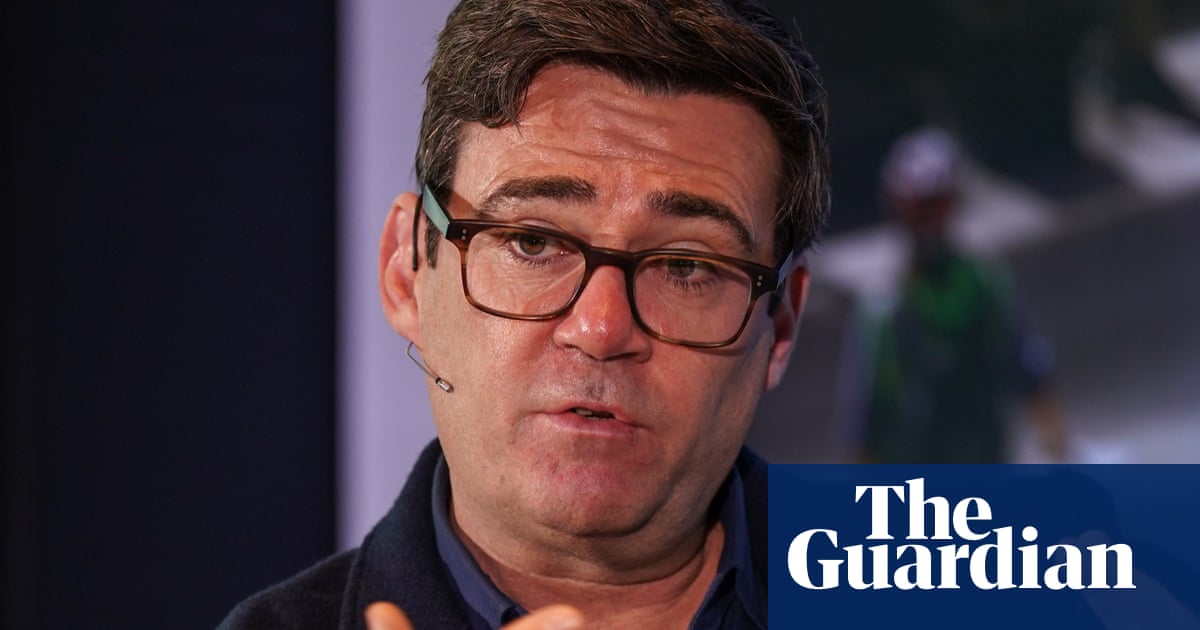
Andy Burnham believes that Labour would not have lost so many seats to the Tories in its traditional heartlands in the north of England if he had defeated Jeremy Corbyn in the race for the leadership in 2015.
In an interview with the Observer, in which he makes clear he would run for the leadership again after the next general election if he had widespread support, the re-elected mayor of Greater Manchester is scathing about Labour’s failure to be bolder on major issues of policy, particularly reform of social care.
And in an indictment of what he sees as his party’s caution, he says Labour in its current state would not, in his view, be bold enough to repeat probably its greatest achievement – the creation of the NHS in 1948.
While Burnham stormed to victory in his mayoral election on 6 May, winning every one of 215 wards in Greater Manchester, Labour suffered losses in many other of its traditional heartlands behind the so-called “red wall”, and endured a crushing defeat to the Tories in the Hartlepool byelection.
The defeats have led many in the party to question whether leader Keir Starmer can return Labour to power and ask who would succeed him in the event that the Tories win again. An Opinium poll for the Observer today shows Burnham is widely seen as the most likely and able successor.
Burnham said that had he beaten Corbyn in 2015 he would have been more successful in preventing the Tories from breaching the “red wall” and countering their promises to “level up” the north. “I still think life would have been different if I had won in 2015,” he said. “I think we would be stronger in taking on the government on levelling up. I don’t think we’d have lost as many northern seats had I won.”
He insisted he would not be challenging Starmer, nor was he was thinking of going for the leadership before the next election or “any time soon”. But he added: “If there comes a point where it is clear to me that the Labour party, having not thought me right twice, suddenly thinks well actually you probably are now, because of the way the world has changed, then as I say, I will put myself forward to lead the Labour party.”
Burnham, who stood for the leadership unsuccessfully in 2010 and 2015, said Labour could not afford to lose any more parliamentary seats like Hartlepool and argued that it needed to use his success in Manchester to learn how a party’s fortunes could be revived through devolution and closer contacts with voters.
Under successive leaders, while Labour had been in government and in opposition, Burnham said he had been deeply frustrated that the party had failed to come up with a clear or bold enough policy to address the challenge of social care. He suggested that had it done so before the 6 May elections, it would have had a far clearer message with which to take on the Tories.
Such caution had led him to believe his own party now lacked the visionary zeal of postwar years. “The Labour party created the NHS postwar,” he said. “I ask myself, could the Labour party that I’ve been associated with in the 20 years that I’ve been in elected politics … could it create the NHS? And no, is the only thing I could say, because it hasn’t seemingly got that wherewithal any more to take on a big injustice.”
Today’s Opinium poll found Burnham the favourite when voters were asked who would be a good Labour leader, were Starmer to depart the stage. Some 47% of those asked said he would be good in charge of the national party, while 19% said he would be bad. Second was London mayor Sadiq Khan (35% said he would be good with the same percentage saying the reverse). In third place was Hilary Benn with 29% saying he would be good against 23% who said he would be bad.
After 10 days of negative coverage since the local elections, Labour nationally has dropped six points to just 31%, and now stands 13pts behind the Tories, who are up two points to 44% compared with a fortnight ago. Just under a half (49%) of 2019 Labour voters think Starmer should remain as Labour leader but a third (33%) think he should resign.
The government’s handling of the pandemic now has a net approval rating of +14%, the highest since mid-April 2020. Now just under half (47%) approve of their handling, while 33% disapprove.












